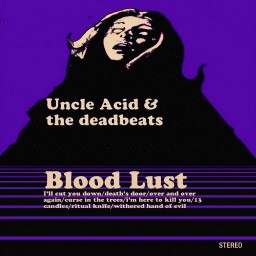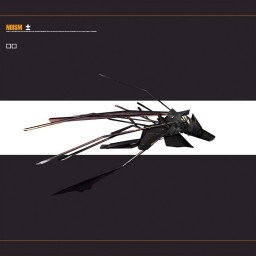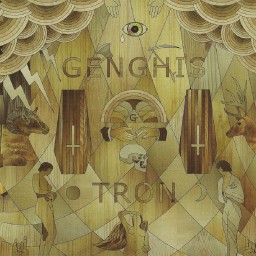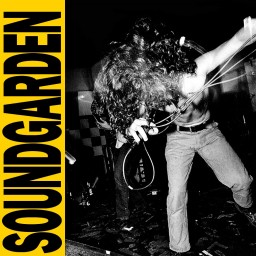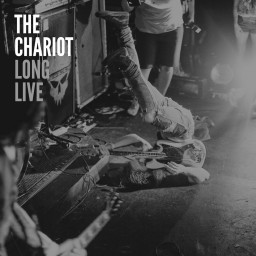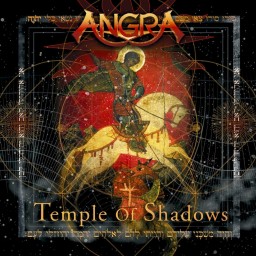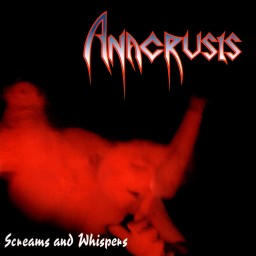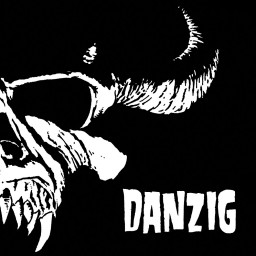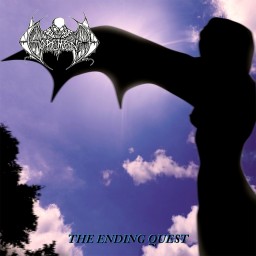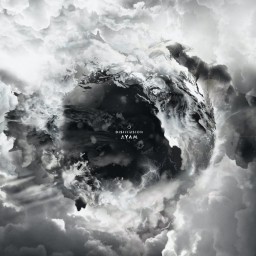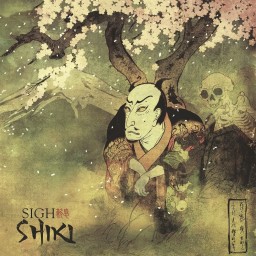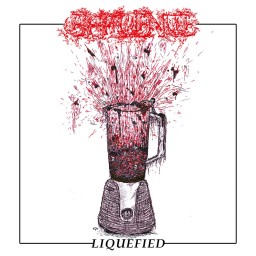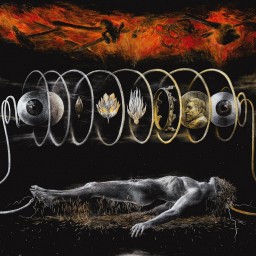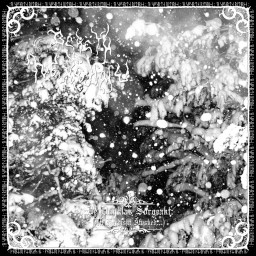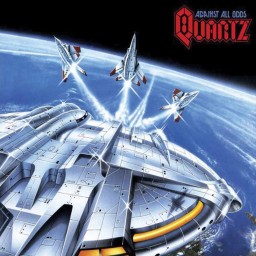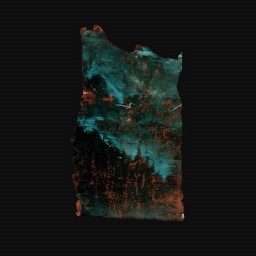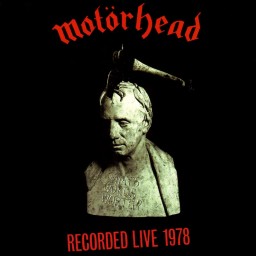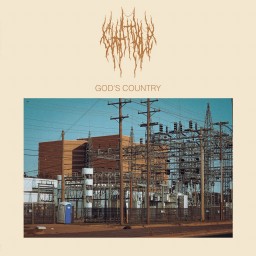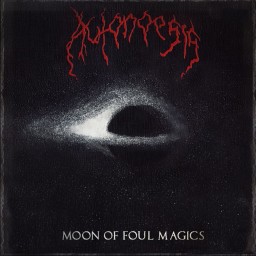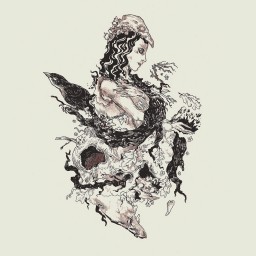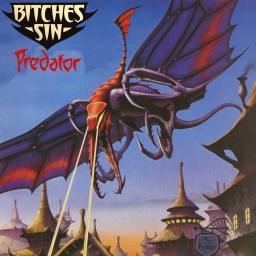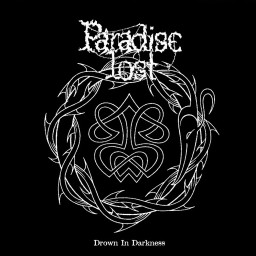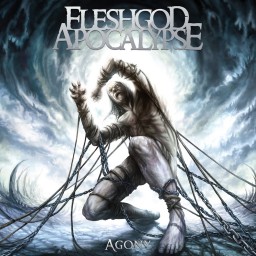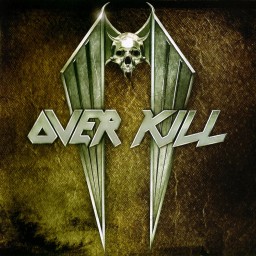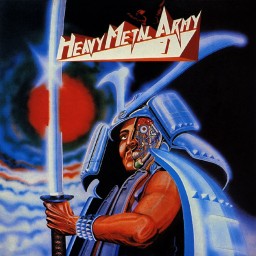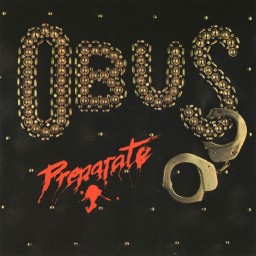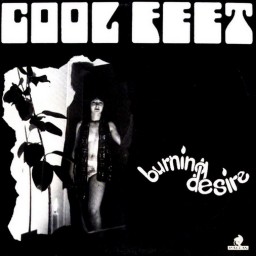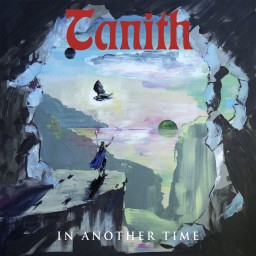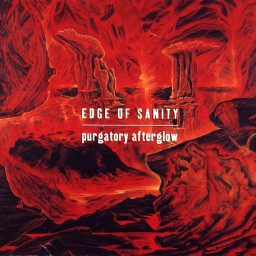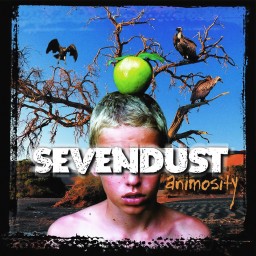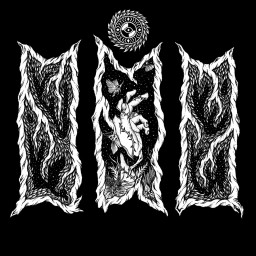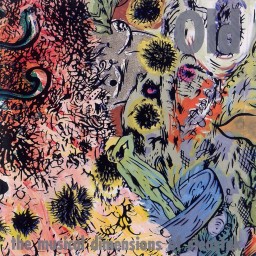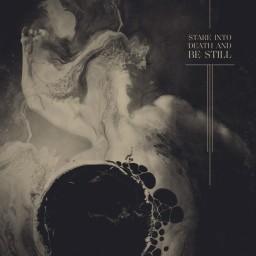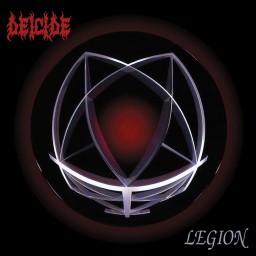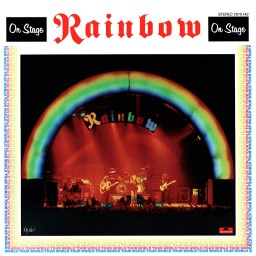Daniel's Reviews
English retro outfit Uncle Acid & the Deadbeats seemed to get a whole bunch of attention in the early 2010's, no doubt buoyed by (& partially responsible for) the revival of interest in the old-school heavy psych & traditional doom metal sound. That sound has always offered me a fair amount of appeal however I've somehow managed to steer clear of exploring a full Uncle Acid record until now. I've certainly heard a few tracks here & there but can't say that I've heard anything that made me stand up & pay attention. They did however seem to be unintimidating enough for me to play while driving my young kids around in the car so I thought I'd pull out the band's most highly regarded release to see what all the fuss is about.
2011's "Blood Lust" has clearly been intentionally tailored to sound like the late 1960's/early 1970's with a thick layer of fuzzy distortion having been layered over the top of everything (including the vocals). It's like the levels have been intentionally overdriven & this leads many people to link the band to the heavy psych movement because there is a reasonable amount of psychedelia on offer in some of this material. There's also a fair whack of stoner rock/metal about these songs with the riffs often taking a groovy, mid-paced direction with the rhythm section opting for a bluesy rocking-to-sleep style beat that references traditional doom metal without fully committing to the oppressive atmosphere & sluggish tempos. "Withered Hand Of Evil" is the clear exception as it sees the band descending into fully-fledged doom territory while CD bonus track "Down To The Fire" is a lovely way to close out the album with it's references to the British folk rock scene. The whiny higher register vocal delivery of front man Kevin Starrs is very effective & the added distortion gives him a similar mystique to that which Electric Wizard have often achieved with their vocals.
I enjoyed "Blood Lust" quite a bit with every one of its nine tracks offering me some level of appeal. I definitely would have preferred a bit more of the genuine doom metal I was expecting though as much of this material is a little more mid-paced & groovy than I'd hoped but I do buy into the whole retro vibe it's been so successful at recreating & there's no doubt that "Blood Lust" succeeds in building a lovely thick atmosphere. At the end of the day I think I can see why Uncle Acid & the Deadbeats have been so successful but I don't think they'll ever reach the same level of affection with me personally, even if I get a general feeling of enjoyment out of their music.
Genres: Doom Metal
Format: Album
Year: 2011
I hadn't heard of Tokyo-based duo Noism before but I'm unlikely to forget them after experiencing (yes, experiencing) their one-off 2008 album "±" as I've rarely taken such a musical battering & that's saying something given my taste profile. You see, the racket this artist produces across the short 21 minute duration of this release is almost unparalleled. Imagine a continuous barrage of freeform breakcore drum machine programming with seemingly random psychotic death metal guitar noise underneath it, changing wildly from one idea to the next without any warning or thought for compositional integrity. It's relentless in it's savage attack on the senses, confusing the mind so as to ensure that identifying the individual components is almost too tiring to attempt. It's a confusing ride & it's probably a good thing that Noism opted to leave the album purely instrumental because I'm not sure my ears could stand another component.
"±" is certainly short for an album but there's little doubt that it needs to be as there's no way to differentiate between the individual tracks. They all sound very much the same, kinda like an argument between a nail gun & a machine gun has gotten wwwaaayyyy out of hand. It's just so fucking extreme though which sees my eyes being continually drawn to this creative car crash. Why do I find myself liking this cacophony so much? I think it's the underlying hum of authentic underground deathgrind in the guitar work which pays no attention to traditional structure but manages to fill the space with an authenticity that I can relate to on a purely visceral level. This is genuine cybergrind ladies & gentlemen. It fits the description perfectly & has single-handedly proven to me that the niche subgenre has some basis for existing in the first place. Approach this release at your own peril but, if you're prepared to take that risk, accept "±" for what it is & enjoy the undiluted chaos it throws at you from close range.
Genres: Grindcore
Format: Album
Year: 2008
I really enjoyed Genghis Tron's 2006 debut album "Dead Mountain Mouth" when I nominated it as a feature release for The Horde back in 2006. It sounded so fresh & original at the time (not to mention well produced) however I do remember questioning it's credentials for the clan & those feelings have stayed with me ever since, only being further exacerbated by my experiences in programming cybergrind material into the monthly The Horde playlists. It only makes sense then that I would begin my cybergrind deep dive by exploring Genghis Tron's debut release in 2005's "Cloak of Love" E.P.
This little record offers more of a taste than a meal with it's run time flying by in just twelve minutes but I get the feeling that these sort of releases are better off not overstaying their welcome with the risk of their novelty value wearing off being rather high. There are five short tracks on offer here & things start off rather well with the first three tracks all being pretty interesting & generally rewarding. Unfortunately though, the remaining two see Genghis Tron's quirky silliness being pushed a little too far & see the overall result being tainted for me.
So, is this cybergrind? Well, "Ride The Steambolt" certainly is as it uses grindcore as it's basic building blocks but I'd suggest that the other four tracks use it more as a tool than a core component. Those four tracks have more electronica & downtempo than metal & when the blast-beats come in they're often sporadic & rarely overstay their welcome. The atmosphere these songs create is really quite bizarre too & I feel that they're far better suited to an Avant-Garde Metal tag as you'll rarely find a stranger sounding metal record. And this is a metal record. Let's be clear about that because despite the strong electronic focus the blast-beats & screaming vocals work to completely alienate anyone that's not already associated with those techniques so I can't see too many fans of EDM coming in for a casual listen.
As with "Dead Mountain Mouth", it's the smooth downtempo moments that really shine here & I even enjoy the more quirky electronica more than I do most of the metal too. I can't help but feel that perhaps Genghis Tron would have been better suited to creating some more serious electronic releases than going for an off-the-wall approach like they have here. But, in saying that, they seem to have found somewhat of a niche in the market & are doing pretty well for themselves so what would I know.
Genres: Grindcore
Format: EP
Year: 2005
I found this CD lying around in a big box of old CDs in the back of the cupboard & felt like revisiting it this week. "Louder Than Love" was my introduction to Soundgarden (& probably the grunge scene) back in the day through the video clips to "Hands All Over" & "Loud Love" which used to be played on a music show called "Rage" on late-night Australian TV. It was through these songs that I fell in love with Chris Cornell's voice & he'd go on to become my all-time favourite singer. "Louder Than Love" covers a lot of different musical territory with grunge, stoner rock & stoner metal being the most prominent in my opinion. There are a few genuinely doomy & sludgy moments & even a hint at southern rock but overall I think this record is best served by a dual Metal Academy tag of Alternative Metal & Stoner Metal so I'll be putting a Hall of Judgement nomination through to get stoner metal added shortly.
Soundgarden have always been at their best when they're at their Black Sabbath-inspired heaviest & that's definitely the case here. A lot of that has to do with Cornell having his leash taken off so that he can truly soar with those soul-piercing shrieks but the way the band build tension & use tinges of psychedelia is also pretty amazing. There are some truly sublime tracks on this record, some of Soundgarden's finest ever in fact. Both sides open with two utterly killer monsters & it's not hard to see why the grunge movement blew up off the back of that stuff. Unfortunately both sides take a downward trajectory after that with the B side sadly descending a little too far over the last couple of songs which leaves the album finishing on a poor note. If you can look past those filler tracks though, there is some wonderful material included from a band that was packed with stars & featuring one of the greatest rock/metal front men of all time in his absolute prime. Cornell would continue to ride that peak into 1991's all-conquering & career-defining "Badmotorfinger" record & "Louder Than Love" has tended to be overlooked ever since but I can assure you that it's worth exploring if you're into rock/metal music in general (which you obviously are if you're at the Academy).
Genres: Alternative Metal
Format: Album
Year: 1989
I'm glad that I selected this album as our February 2023 feature release as it's ended up delivering what I'd hoped it would &, in doing so, has probably surpassed it's more familiar 2012 follow-up "One Wing" in terms of creative aggression too. If you simply can't get into the modern metalcore sound with young, skinny white dudes with long fringes, huge round ear rings & obscene neck tattoos swinging their limbs violently around in windmill fashion then I'd suggest that you might struggle a bit with "Long Live", particularly with vocalist Josh Scogin's continuous barrage of rude screaming. However, if you're partial to the odd rebellious breakdown & give "Long Live" enough time to reveal its charms then you may just discover the highly professional & super-intense band within. There's a great electricity & urgency about everything that The Chariot produce for us here & I never found myself reaching for generic metalcore terms, despite the fact that The Chariot are not attempting to reinvent the wheel here. The A side flashes by in an instant & without too much complaint or fanfare but it's the B side that contains all of the real gold in my opinion with the mathy "The Earth", the post-hardcore inspired "Robert Rios" & the crushingly epic album highlight "The King" taking the album to another level & carrying it up a half mark in my eventual rating. The production is spot on for this type of music as it captures every nuance while losing none of it's visceral edge. If you enjoy high quality, no-holds-barred metalcore then I'd suggest that you check out "Long Live".
Genres: Metalcore
Format: Album
Year: 2010
OK, so I really tried with this one. I genuinely wanted to like it (particularly as the guitar solos are so spectacular) but I just couldn't quite get it over the line in the end & it wasn't because it's a power metal record as the reality is that it's actually not. I challenge anyone to identify more than two or three of the thirteen tracks that are genuine power metal here. The two obvious ones ("Spread Your Wings" & "The Temple of Hate") fall into that Helloween/Rhapsody space & are pretty intolerable to me though so I guess the genre has still had an impact on my overall enjoyment factor. If you examine the tracklisting closely though you'll find that most of the album is actually made up of a fairly ambitious brand of Dream Theater-inspired progressive metal which sounds good on paper but in practice ends up being too laden with cheese for my taste. It was a bit frustrating to find that I enjoy just over half of the individual tracks but that the inclusions that I can't get into are so wide of the mark that it taints the whole experience for me.
As I said, those solos try their very best to salvage things for me as they're as good as you'll hear (Better than Dream Theater though Andi? That hurts! Petrucci is my guitar idol!). Front man Edu Falaschi tries really hard to sound like James LaBrie for the majority of the album & pulls it off pretty well for the most part while the orchestration is really well done but it's the usual concept album tropes that drag things down with numerous filler tracks being included purely for the sake of a storyline that I have next to no interest in. The symphonic element is predominantly used as an accompaniment rather than a focal point which was a relief but Angra simply lose me too often to warrant me returning to "Temple of Shadows". Instead I find the record to be a good source of playlist tracks with songs like "Winds of Destination" & "Morning Star" being high quality examples of the progressive metal genre.
Genres: Power Metal
Format: Album
Year: 2004
I'm glad Ben choose this release as this month's feature because it's been on my radar to revisit for a while now & I'd probably have checked it out this month at some point anyway. I remember not being as positive about it as I'd hoped at the time of release which is probably why it's taken me all these years to get back to it &, to be honest, not a lot's changed. Ben's been a massive fan of "Screams & Whispers" for a zillion years now but I just can't see what the big deal is. It's a serviceable progressive metal record with some thrash metal influence. I don't think it's accurate to call it a progressive thrash release as the progressive side of Anacrusis' sound dominates this tracklisting with a fair amount of US power metal in their sound. The thrashier parts remind me a lot of Testament's "Practice What You Preach" & "Souls Of Black" albums & vocalist Kenn Nardi seems to try to sound like Chuck Billy during his more aggressive moments too but I'd compare "Screams & Whispers" more to bands like Watchtower, Mekong Delta & particularly Nevermore more than I would to Coroner or Vektor.
Unlike Sonny though, I'm gonna have to admit that I find the vocals to be one of the weaker components of "Screams & Whispers". I wouldn't say they're much more than serviceable & think that a record like this one is sorely lacking a top line front man. I also find the production to sound noticeably dated with the rhythm guitar tone suffering from a hollow frequency scoop that was very much of its time & the keyboards being pretty random & more than a bit cheesy. I don't really find the album to get going until it makes a late surge through the one-two punch of the Voivod-inspired "My Soul's Affliction" into "Driven" but sadly the tracklisting dies in the ass shortly afterwards with the lengthy closer "Brotherhood?" which is the clear low point of the album.
I dunno. There are some really good things going on here (particularly the proggier lead guitar work which generally elevates things) but I'm afraid I don't see this record as the minor underground classic it's widely regarded as being. Enjoyable? Certainly but, despite the clear talent on display, I find it a bit hard to look past the flaws here.
Genres: Progressive Metal Thrash Metal
Format: Album
Year: 1993
Interestingly I'd never given Glenn Danzig's widely celebrated self-titled debut an active listen until now. I was certainly across the couple of tracks that got flogged on underground metal radio back in the late 80's/early 90's ("Twist of Cain" & "Mother" specifically) but the rest of the record was previously unknown to me. I didn't mind Danzig's 1990 sophomore album "Danzig II: Lucifuge" though so I thought I might also enjoy the debut & I do to a similar extent. Neither album are particularly to my taste but both offer a crunchy brand of bluesy AC/DC style hard rock with a darker Black Sabbath edge & a vocal delivery that pays homage to Elvis Presley. Is it a metal release? Not even close in my opinion. There are a couple of legitimate heavy metal tunes amongst the ten on offer (see "Am I Demon" & "The Hunter") but I can't say that I ever really find myself considering a metal-based tag for this one. The consistency of the tracklisting is certainly pretty good though as there's not a weak track in sight but, in saying that, I don't think there's a truly classic song here either. In fact, the two most popular tracks are probably the ones that I enjoy the least amongst this lot. I do dig the bluesy feel & the warm & uncluttered back-to-basics production but I don't think "Danzig" will be one that I return to all that often. I'd probably take the follow-up over this one by a slim margin.
Genres: Heavy Metal
Format: Album
Year: 1988
Sweden’s Gorement are one of those unique cases of an extreme metal band that has built up a following very gradually over many years before finally being placed on somewhat of a pedestal by underground enthusiasts who all swear blind that they were into them back in the day. The reality is that unless you were an obsessive tape trader then you probably didn’t encounter the band until long after the year of release. There was a bit of a buzz around the tape trading scene about Gorement’s solitary full-length in the mid-1990’s & I was lucky enough to pick the album up through an Aussie trader I was involved with who was utterly infatuated with Swedish death metal, particularly of the doomier variety as we find here.
I have to say that “The Ending Quest” didn’t blow me away at the time though & it’s been fascinating to see their cool-factor gaining momentum over the years. I’ve been meaning to revisit the album for a good four or five years since I noticed it had been remastered & released by Century Media, mainly because I wanted to see if I’d been missing something back in the day. I also had a strong suspicion that “The Ending Quest” might be something that would interest our beloved Sonny given that one of my strongest memories of it was that it sat somewhere in the grey area between death metal & doom/death.
Upon review, I’d have to say that that’s a fairly accurate recollection because, despite most websites claiming Gorement to be doomy death metal in a similar way to that of bands like Autopsy & Asphyx, I’d suggest that “The Ending Quest” is actually a more genuine hybrid & worthy of a dual tagging (& clanning too if you want to get technical). Gorement combine the classic mid-paced death metal of Bolt Thrower & early Amorphis with the melodic doom/death of early Paradise Lost & Katatonia but they do it with the sort of grimy underground authenticity that appeals to an audience that was raised on crudely dubbed demo tapes. The execution is fairly sloppy & unsophisticated with the musicianship not being high on the list of priorities however those aren’t criticisms as such as those elements tend to work in with Gorement’s whole image & mystique to tell you the truth. I think it’s the contrast of the dark brutality of death metal with the catchy melodies of doom/death that gives them a unique atmosphere & appeal that’s quite rare these days & the filthy production job only further enhances that.
Front man Jimmy Karlson does a splendid job at the death growls & he may well be the highlight of “The Ending Quest” although there’s also an argument for the atmospheric guitar melodies during the doomier moments too. Unfortunately for me though, I’ve always favoured the more sophisticated American brand of death metal over the comparatively more primitive Scandinavian style & that position sees me craving a little more professionalism here. Despite quite enjoying almost the entire tracklisting, I can’t say that I find any of these tracks to really hit my sweet spot. It’s only really the noticeably weaker “Darkness Of The Dead” that I regard as being subpar with the other nine songs possessing an impressive consistency, even if the level they’re maintaining isn’t close to the top tiers. I tend to find the doomier moments to be more attractive than the up-tempo death metal riffs & I think that comes down to the band’s lack of precision as much as anything.
After giving “The Ending Quest” a few active listens in recent days I’ve reached the conclusion that not a lot has changed in regard to its appeal for me personally. It’s certainly an enjoyable listen but I can’t say that I feel like I’ll be returning to it any time soon. Is it worthy of the praise it seems to receive these days? Well… no, I don’t think it is. There was much better material being released at the time & I kinda get the feeling that it’s the albums primitive aesthetics that are as responsible for its lofty status as much as anything else. I mean, just take a look at that album cover, particularly the logo which seems to have been hand-drawn & pasted on with glue! If that’s not authentically underground & primitive then I dunno what is.
Genres: Death Metal
Format: Album
Year: 1994
I recall being very pleasantly surprised by the 2004 debut album from German progressive metallers Disillusion when I finally got around to checking it out many years ago. I hadn’t heard all that much about it & just kinda stumbled over it a good five years after its release which left me wondering what rock it’d been hiding under for all those years. Ben didn’t hesitate in advising me that it was me that’d been hiding under a rock which is probably true but given the impression that “Back To Times Of Splendor” left on me at the time it’s a little surprising that I haven’t checked out any of the band’s subsequent releases until now, even more so after being thoroughly captivated & enthralled by this spectacular example of progressive metal music.
You see, “Ayam” is everything a prog metal fan could reasonably want from an album. The production is expansive & glistening, the musicianship is to die for & the song-writing is layered & ambitious. The melodic death metal component of Disillusion’s sound has almost completely disappeared since the debut but has been replaced by a stronger focus on melody, dynamics & atmosphere. This could be viewed as a negative by some fans but for me personally this has ended up being a positive. The instrumentation still reminds me of the less intense material from some of the premier extreme progressive metal bands like Opeth, Persefone & Ne Obliviscaris however Disillusion are a little more restrained & introspective these days. In fact, I’ve found myself making comparisons with Anathema’s more progressive works at times such is the refined sense of emotion in Disillusion’s modern sound. I simply adore the vocals of front man Andy Schmidt who sounds uncannily like Beck at times & possesses a tone that competes with Katatonia’s Jonas Renkse in terms of smoothness. Another highlight comes in the form of some wonderfully progressive guitar solos which refuse to be held back by traditional rock conventions & soar above the rest of the music with some truly angelic melodies that harness the exponent’s obviously impressive technique rather than being purely a showcase for it. Don't forget drummer Martin Schulz either cause the dude can play!
The tracklisting is without blemish with each of the eight tracks being very strong in its own right. Unlike “Back To Times Of Splendor” though, I’ve found that "Ayam" possesses a few truly transcendent tracks that enable the album to reach a higher level of adoration for me personally. Eleven minute opener “Am Abgrund” sets to tone beautifully & is probably the heaviest song included. “Longhope” is pure class too but it’s the most introspective piece of the eight that captured me to the highest degree in closing number “The Brook” which has probably ended up being the track that’s seen me tempted to push “Ayam” up into the running for my higher scores. Throw in some heavenly cover art that I can’t seem to see myself looking away from & you’ve got one of the best metal albums of 2022 & an essential release for members of The Infinite.
Genres: Progressive Metal
Format: Album
Year: 2022
I quite liked Sigh when they first hit the scene back in the 1990’s but when I returned to them following my decade-long absence from the metal scene I found that they’d gone way too far with the weirdness & albums like “Scenes From Hell” & “In Somniphobia” left me nothing short of repulsed. As a result, my expectations for their twelve full-length weren’t exactly high if I’m being completely honest but I’ve been left pleasantly surprised because last year’s “Shiki” has seen them dropping their avant-garde side for the most part, instead concentrating on a beautifully produced & well-composed progressive metal sound that's full of chunky riffs, blackened vocals & well integrated references to space rock & traditional Japanese music. The recruitment of session musicians guitarist/bassist Frédéric Leclercq (Dragonforce/Kreator/Loudblast) & drummer Mike Heller (Malignancy/Fear Factory/Raven) have proven to be very positive moves but unfortunately the Japanese-language black metal vocals are somewhat of a limiting factor here as I don’t think they’re powerful or professional enough to allow “Shiki” to reach the heights it was so clearly intended for. As usual I find myself being drawn to the album’s least popular tracks more than its obvious drawcards too with the three shorter intro/interlude/change-up tracks being the parts of the tracklisting that appeal to me the most (particularly the stunning space rock piece “Kuroi kagami”) but there aren’t any weak numbers included & I found “Shiki” to be an intriguing & generally rewarding experience that's probably the best material I've heard from Sigh.
Genres: Avant-Garde Metal Progressive Metal
Format: Album
Year: 2022
I really struggled with unusual American solo-act Effluence's 2021 debut album "Psychocephalic Spawning" as it just seemed to hold nothing of musical value so I've been very hesitant to return for another helping, despite the continuous stream of praise being heaped on them from my beloved underground death metal scene. However, the fact that Effluence's "Liquefied" E.P. is one of the top rated BDM releases of 2022 has seen me feeling that I simply had to give it a crack but unfortunately I'm now regretting that decision because this little release is right up there with the worst metal records I've ever encountered. It's essentially an attempt to make as much of a cacophony of silly noises as it's humanly possible to achieve & I've never been one that appreciated humor in my extreme metal.
The death metal component brings to mind bands like Defeated Sanity, 7.H Target & Dripping with the over the top blast-beats & super-deep, unintelligible vocals but every track might as well be the same because there aren't any themes or differences in atmosphere to grab onto. As absurd as it sounds for a death metal record, there seem to be several references to the kitchen here with the inclusion of blender sounds & the cover art & track titles being angled towards food preparation themes. I find it all so hard to tolerate to be honest & I also struggle to think of who the target demographic for a release like "Liquefied" might be. Perhaps they're not even metalheads but teenage stoners looking for a laugh? Certainly not any of our Metal Academy regulars & I'd encourage everyone to give Effluence a wide birth.
Genres: Avant-Garde Metal Death Metal
Format: EP
Year: 2022
Single track E.P.'s are often found to be guilty of over-indulgence but this 25 minute piece from English death metal duo Qrixkuor has cast aside any potential for musical wankery by creating a unique & (at times) quite frightening soundscape that takes the listener through uncharted territory. The basis for Qrixkuor's sound sits in the darkest & swampiest depths of the death metal spectrum however they've managed to differentiate themselves from the crowd through the incorporation of symphonic elements in such a way that it reminds me of a horror movie soundtrack rather than any cheesy attempt at atmosphere. You see, Qrixkuor's dense wall of darkness is far more complex & possesses a lot more integrity than the vast majority of bands that are linked to the term "symphonic". The guitar & bass work is highly complex & layered, the drums are used in an almost military fashion at times & the growled vocals are as deep & cavernous as you could want. As the song structure runs its course, you'll encounter several acts that make up the overall piece but it's unquestionably the crescendo that takes place during the last 5 or 6 minutes that's the kicker here & it represents the culmination of all of the band's hard work during the build-up of the first 20 minutes or so. You'll rarely hear something more unnerving or genuinely scary.
"Zoetrope" isn't the perfect piece of art however. The drumming isn't as accomplished as it could be which is a shame because there's definitely some unfulfilled potential left here. I do feel that the piece could have been a little snappier & a little culling could have gone a long way here but it's hard to be too critical when as artist has created an horrific world that sounds like nothing you've experienced before. The purely death metal component will likely draw comparisons to the likes of Teitanblood, Portal & Antediluvian but it's presented in a way that pulls Qrixkuor away from their peers by giving them their own identity. I have to admit that I can't pick up any of the black metal influence that's seen Qrixkuor being tagged as blackened death metal on many competitor's sites. "Zoetrope" is as death metal as they come as far as I'm concerned & it comes highly recommended for devotees of the darker end of the genre.
Genres: Black Metal Death Metal
Format: EP
Year: 2022
I don't mind the latest release from prolific Swedish one-man atmospheric black metal artist Bekëth Nexëhmü. It was his second album for the year, following just two months after "De evigas gravrit" which is self-indulgent enough in itself if not for the fact that this new record is 104 minutes long which is just taking the piss, isn't it? You can expect a very raw, lo-fi production, the consistent use of tremolo-picked riffs & blast-beats & those distant, tortured Varg Vikernes style screams, kinda like a more brutal example of the cold & atmospheric sound that other solo acts like Paysage d'Hiver, Trhä & Burzum champion. There are quite a few interludes included which comprise of some post-black metal inspired pieces as well as a couple of lengthy folk guitar instrumentals. The black metal material is hit & miss for me as some of the tracks can sound a bit too consciously epic & triumphant, occasionally turning to glistening melodic riffs that remind me of blackgaze artists like Deafheaven. The brutality factor is a definite plus for me though & the quality of some of the interludes is excellent with a few of those pieces being my favourite moments on the album. Overall, this release will probably satisfy a lot of our The North members but doesn't compete with the top tier in my opinion.
Genres: Black Metal
Format: Album
Year: 2022
I quite liked Birmingham NWOBHM outfit Quartz' 1977 self-titled debut album & also their 1980 sophomore record "Stand Up & Fight" which saw them upping the metal significantly. I'd never ventured further forwards than that in the band's discography until now but thought I'd take on the third of their more well-known releases in 1983's "Against All Odds" third album. Quartz would split up later the same year, only to reform in 2011 & they're apparently still around today & have in fact just released a brand new album. Anyway... "Against All Odds" isn't as entertaining as its older siblings with the wishy washy production job & uninspired song-writing missing the mark they'd previously reached. You can certainly expect to hear the hard rockin' brand of heavy metal that became the calling card of the NWOBHM but the tempos are sluggish & the chorus hooks are a bit lacking this time, particularly when they attempt their more accessible numbers. The best moments inevitably occur when we find Quartz channelling metal idols like Black Sabbath & Judas Priest but there are a couple too many failures overshadowing the album highlights here in my opinion. My suggestion is that you stick to the first two Quartz records if you're looking to expand your NWOBHM horizons.
Genres: Heavy Metal
Format: Album
Year: 1983
The early 80’s releases from all-female London NWOBHM four-piece Girlschool have generally offered me a fair bit of appeal in the past. Their 1980 debut album “Demolition”, 1981 “St. Valentine’s Day Massacre” split E.P. with Motörhead & their 1982 third album “Screaming Blue Murder” all possessed enough rock ‘n’ roll electricity to keep me entertained although I strangely found their most widely celebrated 1981 sophomore album “Hit & Run” to be a little flat in comparison. I’d never ventured any further into the band’s back-catalogue however, perhaps being scared off by the claims that they’d sold out by taking a more polished & commercially accessible direction with their subsequent albums, so it's high time that I investigated a) whether that is indeed the case & b) whether it’ll have a detrimental effect on their appeal.
The album cover certainly gives you a strong indication that Girlschool had moved on from their dirty Motörhead-inspired roots, doesn’t it? And opening track “Going Under” (the only genuine heavy metal song on the tracklisting) does nothing to turn that impression around as it sounds much more like Def Leppard’s over-produced post-NWOBHM releases than it does Girlschool’s much rawer previous albums with its use of synthesizers & meticulously harmonized backing-vocals not being the only time those tools would pop up amongst the ten tracks. It’s a catchy number though & sees the record getting off to an entertaining start. Unfortunately, the remainder of the album makes for a rocky ride with some of the tougher hard rocks songs (see the title track, “Rock Me Shock Me” & album highlight “Running For Cover”) getting me nodding my head & humming the chorus hooks while the filler tracks around them left me slightly bemused & a touch bored, particularly the god awful “High & Dry” which is nothing short of terrible. There are even a couple of songs that I’d suggest cross over into… *gulp*.. US glam metal territory which I don’t regard as a positive move & I much prefer the material that sticks to an AC/DC-style crunch over those numbers.
There can be no denying the quality of the production job here as everything sounds crisp & attractive. Perhaps that’s not a good thing with a band like Girlschool though as a big part of their appeal lay in their grimy, working-class attitude & care-free, punk-rock image. Both of those things have been cast aside with “Play Dirty” & it’s been hard not to let that fact taint my impression of a record that was clearly intended for the US market. Sadly, it’s ended up being the band’s weakest release to the time & Girlschool have apparently never managed to right the ship in all the years that have passed since as far as I can tell either. “Play Dirty” may not be awful as such but I’d nonetheless suggest that you stick to records like “Demolition” & “Scream Blue Murder” if you’re looking for a bit of danger in your hard rock music.
Genres: Heavy Metal
Format: Album
Year: 1983
Yet another stunning highlight from a band that is now the clear leader of the post-sludge metal movement, “The Long Road Home" is an album that creeps up on you slowly, gradually attaching itself to your heart-strings & ever so gently increasing the tension until Cult of Luna have you strung up so tight that you feel you'll likely burst at any moment. The album starts off in fairly predictable fashion & (as Sonny spoke of in his review) you're very unlikely to be surprised by what you receive with a new Cult of Luna record however I simply cannot deny that the class & sophistication that this band possesses places them up above their peers when I experience the stunning attention to detail & compositional complexity they invariably produce.
Things only start to really get going with the glorious atmospherics of earie third track "Beyond I" but they rarely subside from that point onwards. As usual with me, it's the least popular tracks that I rate the highest with short post-rock piece "Full Moon" & closing ambient number "Beyond II" stealing the show from wonderful post-sludge epics like "An Offering to the Wild" or "Blood Upon Stone". "The Long Road Home" is perfectly suited to it's title as it's a lengthy record at 69 minutes but will continue to open up with each listen, offering increasingly greater rewards for the active listener's investment. "Somewhere Along The Highway" may still be Cult of Luna's crowning achievement however "The Long Road Home" isn't all that far behind their best work & I'd even go so far as to say that it has a slight advantage over their classic 2004 third album "Salvation" for me these days. Essential listening for post-metal fans.
Genres: Sludge Metal Post-Metal
Format: Album
Year: 2022
This was an historical live recording of a gig from 1978 & I get the feeling it was more of a cash-grab intended to milk the band's growing popularity than anything else as the production is pretty much radio quality & the performances aren't their best either although guitarist Fast Eddie Clarke consistently gives us a whole bunch of his most electric solos. I've never been a fan of Motörhead's pre-1979 work as it's a bit too rock 'n' roll based for my liking & "What's Words Worth?" is another example of that with songs like "On Parole", "Leaving Here" & "I'm Your Witchdoctor" sounding pretty damn flat compared to the much more exciting & visceral material we'd hear from the band the following year. "Iron Horse/Born To Lose" & "White Line Fever" have always been great songs so they manage to stand out of the pack but the rest of the album is pretty uneventful to tell you the truth & is a hell of a long way short of the standard 1981's classic "No Sleep Till Hammersmith" (my favourite Motörhead record) set. It baffles me that people might think this is a metal record too. It's fucking miles away from metal in my opinion.
Ultimately "What's Words Worth?" is an inessential release for completists only. I'd take it over Motörhead's 1976 debut album release "On Parole" (released in 1979) or the 1980 "Beer Drinkers & Hell Raisers" E.P. but that's about it for Motörhead's back catalogue to the time I'm afraid.
Genres: Heavy Metal
Format: Live
Year: 1983
I recently read Ben's review of this popular sophomore album from Tokyo, Japan & wasn't surprised to see him give it a thorough panning. I guess the blackgaze meets post-hardcore tag was a little scary for me too if I'm being honest & I suspected that it might not be for me either but that hasn't ended up being the case in the end. Despite the numerous examples of non-metal genres scattered across the tracklisting (post-hardcore, screamo, downtempo, etc.), "Island" is definitely a metal record; a black metal related one to be more specific. The shoegaze component may not be as prominent as it is on some releases but there can be no denying the generally positive feel to almost all of the riffs & melodies on offer because Asunojokai seem to be a consciously working against all traditional black metal calling cards here, even though they're clearly using black metal tools such as open-string tremolo-picked chords & blast-beats. The vocal delivery sounds very similar to Emperor front man Ihsahn & is pretty effective but it's the class in the executive & production that really shine here & make it hard not to enjoy "Island". The level of musicianship is outstanding which seems to be a prerequisite for most Japanese metal these days. It's a shame that the album peters out at the end with a couple of tracks that overdo the positive vibes because the majority of the tracklisting is really pretty comparable to bands like Deafheaven or Alcest, if taking things another step further in regard to the uplifting melodies. The cover artwork is also a little bemusing given that it's so clearly making a conscious attempt to push the elitists buttons. Regardless of these flaws though, there's easily enough quality (black) metal here to keep me interested, even if a record like "Island" was never going to make a play for my best-of lists.
Genres: Black Metal
Format: Album
Year: 2022
Last year's debut album from this Oklahoma four-piece seems to be getting major attention recently so I thought I'd see what all the fuss is about. "God's Country" is being tagged as a noise rock & sludge metal hybrid but there's a lot more going on here than that. There's certainly a strong Sonic Youth/noise rock influence present but I don't think this a rock release so I find the use of a rock subgenre as a primary tag to be a little deceptive. This is more of a metal meets hardcore thing in my opinion with the vocals being firmly planted in psychotic hardcore realms & the instrumentation being predominantly metal with post-hardcore & noise rock leanings. The thing that most listeners seem to be missing though is that the biggest influence being championed on "God's Country" would seem to be Godflesh &, as a result, I'd suggest that this is actually just as much of an industrial metal record as it is a sludge metal one, perhaps even more so. There's even a noticeable Korn influence in some of the rhythmic riffage which is done very tastefully.
All that aside, "God's Country" is also a high quality release that's worthy of a lot of the attention it's receiving. The vocals are emotion-charged & meaningful while the riffs are heavy & intense. The field recording/acappella piece "I Don't Care If I Burn" is a bit of a waste of space but the rest of the tracklisting is very consistent without ever really hinting at any genuine highlights. Fans of Godflesh & Fange should definitely check it out.
Genres: Sludge Metal
Format: Album
Year: 2022
I wasn't aware of New York progressive metal outfit Moon Tooth prior to Saxy nominating "Phototroph" for The Gateway feature release status this month but it's been a pleasant surprise for me as I've found them to be a capable & classy metal outfit. I'd suggest that they're probably more of a progressive metal band than an alternative metal one & "Phototroph" might have been a slightly better fit for The Infinite but there can be no denying Moon Tooth's alternative edge, particularly in the vocals of John Carbone who sounds very much like Sevendust front man Lajon Witherspoon to me. There's a strong Mastodon influence here with many of the riff structures being quite complex but there are also some tracks that take a more accessible alternative route. I particularly enjoy the lead guitar work of Riot V axe man Nick Lee who showcases a clear Eric Johnson influence in his fluent & speedy runs. The only track I didn't enjoy was the lightweight "Carry Me Home" but this was easily compensated for by the stunning progressive metal highlight track "O My Isle" which is a couple of steps up from the rest of the material (& is apparently the least popular track on the album according to RYM). Fans of fairly melodic & accessible yet structurally ambitious metal are unlikely to be disappointed with a record like "Phototroph".
Genres: Alternative Metal Progressive Metal
Format: Album
Year: 2022
With the New Year now upon us, I’ve notice that last year’s “Moon of Foul Magics” sophomore album from mysterious Toronto extreme metal outfit Autonoesis seems to be hitting a lot of people’s end of year lists so I thought I’d better see what all the fuss is about given that their 2020 self-titled debut managed to slip past me too. The second Autonoesis record is being touted by fans as being a total riff-fest, somewhat of a tribute to the greatness of metal. Well, let’s see if all of the praise is warranted, shall we?
“Moon of Foul Magics” can be a confusing & overwhelming experience upon first listen. There’s a lot of flip-flopping between different influences & subgenres going on which makes it hard to know what to make of it until you’ve given it a couple more airings. Black metal, thrash metal, progressive metal & even a bit of death metal & Viking metal (see the Bathory inspired “Valhöll) are all represented here but if you examine the tracklisting in detail you’ll find that the record is really built on a melodic black metal platform, similar to Dissection, Sacramentum & “At The Heart Of Winter”-era Immortal (particularly in “Nihility, Endless Winter”). The thrash component is very obvious in the classic half-time Slayer/Dave Lombardo breakdowns & more technically complex Coroner/Vektor riffs but I think it’s a touch ambitious to suggest that a release like this one should sit in The Pit alongside the Metallicas, Panteras & Exciters. It would appear to me to be a much more comfortable fit for The North. The progressive component is more sporadically used & is most apparent in the Opeth style clean sections which are beautifully executed just quietly.
The guitar work is very skilfully performed with a high degree of musicality & melody being employed at all times. I can’t say that I enjoy the neoclassical slant on the solos though as I’ve always struggled a bit with that particular technique when it comes to extreme metal, particularly when there’s lots of wanky sweep picking being used like there is here. The black metal screams are fairly generic & uneventful & I can take or leave them but the real weakness in the Autonoesis sound is in the drumming which lacks ambition & sophistication, particularly when you consider how much creative license has been taken with the rest of the instrumentation. This left me wondering whether Autonoesis are really a one-man band & the more I think about it the more I feel that I might be onto something there.
I have to say that I’m a little surprised at the overwhelming acclaim that “Moon of Foul Magics” is receiving online. Perhaps it just comes down to personal taste as the more melodic side of extreme metal has never been my strong suit but I don’t find anything particularly classic here to tell you the truth. It’s certainly an enjoyable metal record with a lot to say but I tend to find it to be a little unfocused & light-weight, not to mention a bit lengthy. It’s like Autonoesis have used the album as a place to showcase how broad their taste in metal is with many songs starting in one place & ending in a drastically different one. I have time for most of the nine individual tracks (with “Crypt of Thought” being the exception) but none of them manage to quite hit my musical sweet spot. I guess I’m just not the target audience for a record like “Moon of Foul Magics”.
Genres: Black Metal Thrash Metal
Format: Album
Year: 2022
San Francisco blackgaze outfit Deafheaven certainly got a few people’s attention with their 2010 demo & I had a bit of time for it myself but it was their debut full-length “Roads To Judah” that really grabbed my attention, pissing off many a kvlt elitist in the process too. You see, despite their undeniable black metal aesthetics, Deafheaven somehow manage to beautifully incorporate the dreamy melodic ideas of the shoegaze genre into their riffs which on paper would seem to be a very poor fit for black metal but in practice sounds like a bit of a masterstroke. The contrast the relentless blast-beats & tortured screams offer to the shoegaze chord changes is certainly different yet I find it to be strangely soothing & somehow both uplifting & melancholic at the same time. Deafheaven went on to master that sound with their classic 2013 sophomore album “Sunbather” but their debut should not be overlooked as it’s a very solid piece of work in its own right.
“Roads To Judah” is a relatively short album by modern standards, clocking in at just 38 minutes in duration which feels appropriate at its completion. The four lengthy tracks all have merit & generally explore multiple different soundscapes within the same piece which often sees the album receiving a dual tagging of blackgaze & post-metal as a result. The blackgaze tag is certainly warranted as the majority of the record is black metal focused & the influence of shoegaze is undeniable on at least three-quarters of the tracklisting. I’d suggest that the post-metal tag is a little ambitious though. Sure, there are several post-rock inspired sections scattered across the album but the blackgaze material is much more prominent & I think that tag inherently covers a bit of post-rock influence anyway so to my ears the post-metal element is more of a secondary component. Front man George Clarke’s blackened shrieks would unquestionably get better over the coming years but he does an admirable job here, as does drummer Trevor Deschryver who blasts away with everything he’s got but would be replaced shortly afterwards by the more obviously talented Daniel Tracy before the recording of “Sunbather”.
Despite being somewhat enamoured with the quality of the overtly blackgaze inclusions, I can’t help but find the track that showcases the least amount of shoegaze influence to be the clear highlight of the album in closer “Tunnel Of Trees” which begins with five minutes of savage black metal extremity & finishes with another five of glistening post-metal atmospherics. It’s a stunning piece of work that really sees the album finishing on a high. The rest of the tracklisting is of a consistently high quality but fails to connect with me on quite the same level, presumably due to the lack of genuine darkness in some of the chord changes & atmospherics. “Language Games” is probably the best example of that as it begins in fine fashion but loses its way a touch around the middle of the song with some lighter-weight melodic ideas. It’s very hard to fault tracks like “Violet” & “Unrequited” though as they seem to complete their mission with emphatic success, despite my tendencies towards a darker brand of extreme metal.
It’s very easy to be critical of “Roads To Judah” by being drawn into like-for-like comparison with its successor but “Sunbather” hadn’t been recorded when I first wrapped my ears around “Roads to Judah” so I wasn’t afforded that luxury until some time later & it deserves to be experienced as an isolated piece of work in its own right regardless. You know what? Fuck the elitists that brutally put this band down because they don’t deserve it. It’s all posturing bullshit as these guys know their black metal alright but they also give it their own original spin that sounds as professional as it does musical. Deafheaven can’t put a foot wrong & sit at the pinnacle of their chosen subgenre as far as I’m concerned.
Genres: Black Metal Post-Metal
Format: Album
Year: 2011
I have to admit that there are some pretty big gaps in my knowledge of post-1980’s Voivod. I was always a fan of the band in the late 80’s & early 90’s but they somehow dropped off my radar to an extent with 1995’s “Negatron” & 2011’s “Warriors of Ice” live album being the only releases I’ve checked out since 1989’s highly regarded “Nothingface” album. I guess they never really sat 100% within my taste profile so I tended to stick closer to my lane for the most part, even though I generally enjoyed their material. I recently noticed that the fanfare around the Canadian progressive metal icon’s eighth studio album “The Outer Limits” seems to have slowly gained momentum over the years though, so much so that it seems to be held up as another prog classic of sorts. That’s been the catalyst for me exploring the album this week & with generally positive results.
The “Nothingface” album had seen Voivod moving away from metal to an extent with the band having adopted more of a progressive rock sound &, from what I can make out by the critical response, their 1991 seventh album “Angel Rat” took them even further away from metal realms. “The Outer Limits” sees Voivod returning to metal in the most part & sounds quite familiar (if that can ever be said of a Voivod release). The angular & unusual guitar riffs of guitarist Piggy are as potent as ever & lead proceedings with Snake’s signature vocal delivery ensuring that you’re never in any doubt as to which band you’re listening to. You see, there’s simply no one that sounds remotely like Voivod, even if they’re consciously trying to. Love ‘em or hate ‘em, they’re a complete musical anomaly & that’s extremely rare in the modern music scene. “The Outer Limits” certainly fits into the progressive metal genre pretty comfortably though & I’d suggest that fans of that particular scene are the most likely audience for a record like this one with very little speed/thrash metal to offer those that are hanging out for a mid-80's revivial. “Le Pont Noir” & “Wrong-Way Street” see Voivod traversing the rockier prog territories of “Nothingface” while the epic seventeen minute album highlight “Jack Luminous” is a psychedelic monster that oozes of Syd Barrett era Pink Floyd influence. We even find the boys attempting some alternative rock sounds that wouldn’t feel out of place alongside the Detroit elite on “The Nile Song”.
Unlike Voivod’s very strong trio of progressive albums from 1987-1989, “The Outer Limits” struggles a touch in the song-writing department. There are no weak songs included with all nine tracks being presented with class & professionalism but the hooks aren’t consistently strong enough to see the album competing with the band’s best work. In saying that though, I do slightly prefer it to Voivod’s early speed metal releases like “War & Pain”, “Rrröööaaarrr” & the “To The Death” demo. It's always refreshing to hear these Canadians taking on spacey sci-fi topics as there are few artists that have the ability to sound so alien & “The Outer Limits” is yet another example of why we need bands like Voivod in a modern metal market that’s flooded with copy cats & pretenders.
Genres: Progressive Metal
Format: Album
Year: 1993
What we have here is yet another underground also-ran from the NWOBHM movement in the debut album from Cumbria-based outfit Bitches Sin. The cover art gives you the distinct impression that you'll be in for a heavily metallic experience (perhaps something similar to Satan?) but the reality is very different to that so it's a bit misleading. Bitches Sin's sound sits somewhere between hard rock & heavy metal with the production sitting a little closer to the rock side of the equation. In fact, the production is the biggest detractor here as the guitars are miles too low in the mix with the pitchy vocals booming over the top but front man Tony Tomkinson's somehow manages to make up for his technical inadequacies in sheer charisma, regularly bringing to mind the blue-collar approach of original Iron Maiden singer Paul Dianno. The lead guitar work may be a little primitive but it oozes attitude (particularly in the electricity of the lightning fast bluesy pentatonic runs) & this helps to carry the weaker material. There are a couple of very catchy songs here that somehow manage to overcome all of the flaws that are doing their damnedest to draw your affections away (see "Lady Lies" & "Looser") but at the end of the day "Predator" was always destined for the second-hand bins & the dustier back pages of NWOBHM history.
Genres: Heavy Metal
Format: Album
Year: 1982
Unlike with the other Peaceville Three bands, I never checked out Paradise Lost's early demos back in the day, perhaps because their first couple of albums didn't make as big an impact on me as My Dying Bride & Anathema's did. I thought I'd rectify that omission this week through this compilation which draws together 1988's self-titled demo, 1989's "Frozen Illusion" demo & 1989's ""Plains of Desolation" live bootleg. Be warned that this is some very rough stuff as far as production & sound quality goes so it's lucky that I have a long history with tape trading. As with Paradise Lost's early albums, the performances are very primitive but Nick Holmes' vocals are excellent & he represents the focal point for the band at this point, particularly as Gregor's guitar work isn't always far enough forward in the mix or perfectly in tune.
The three releases showcase Paradise Lost's evolution from a fairly standard death metal band into one of the earliest exponents of the death doom metal subgenre. The self-titled demo & "Plains of Desolation" sit very much at the centrepoint between the two genres while "Frozen Illusion" sees them having transitioned into a genuine doom/death band & is much the better for it. You'll find a few tracks being repeated across the three releases but they're not always in the same format & have slightly different atmospheres. "Paradise Lost" & "Plains of Desolation" are very poorly recorded with the latter having the guitars sitting miles too far back in the mix but Nick somehow manages to keep things from being a complete disaster through his charismatic delivery. The drumming is particularly poor on "Plains of Desolation" too.
Thankfully though, the "Frozen Illusion" demo is really quite good with "Paradise Lost" & the title track being very entertaining & highly atmospheric examples of early death/doom. It's versions of "Paradise Lost" & "Frozen Illusion" are the clear highlights of the compilation & make it worth checking out for completists & fans of the band but I wouldn't recommend "Drown In Darkness" to casual listeners as it can be a bit of a hard slog at times, even though it certainly offers a fair bit of authentic 80's underground death metal atmosphere. Think Autopsy meets Celtic Frost & you won't be too far off the mark.
Genres: Death Metal Doom Metal
Format: Compilation
Year: 2009
I got onboard with Italian extremists Fleshgod Apocalypse very early on as their 2009 debut album "Oracles" landed right around the time that I was returning to metal after a decade-long hiatus. I thoroughly enjoyed it's super-brutal brand of techy death metal too it has to be said but found myself struggling a little with 2010's "Mafia" E.P. (widely regarded as the band's best work) due to the cheesy neoclassical component & the excessive use of over-the-top blast beats which saw the tracks bleeding into each other. "Agony" landed the following year & saw Fleshgod Apocalypse taking the symphonics they'd hinted at previously & bringing them into the foreground to create a genuinely symphonic brutal death metal sound. Now if that sounds like a bit of a contradiction of terms then you wouldn't be entirely wrong as the orchestration definitely sounds a little out of place over what must surely be one of the most consistently brutal releases ever to grace our ears. The ultra-fast drumming of band leader Francesco Pauli is utterly mind-blowing in its execution & you'd have to suggest that there is no one that can top him in the speed & precision but there's no doubt that the individual tracks struggle to differentiate themselves from one another for much the same reasons as I mentioned previously so I kinda find myself torn given that it's Pauli's drumming that I find to be the main attraction with a record like "Agony". Ironically, it's the slower sections that work best given that the symphonic arrangements simply make for a better accompaniment when they're given more space to create atmosphere. I do find the neoclassical lead guitar work to be better integrated into the band's sound on this occasion though & the solos often work as crescendos of sorts.
At the end of the day I think a lot of extreme metal fans will appreciate "Agony" for it's novelty value more than anything else. It's an exhausting listen at times as the sheer weight of sound is relentless & it could definitely do with more dynamics. The Italians seem to hold the title in terms of brutality these days & if that's the case then Francesco Pauli may just be the central figure in the local movement given his ties with Hour of Penance who also push the limitations of human endurance to their most extreme levels. Unlike their buddies though, I can't say that I easily connect with Fleshgod Apocalypse's music on a more visceral & aggressive level as I'm not a fan of symphonics in my metal. It's lucky for them that I'm a sucker for elite level extreme metal drumming & they certainly aren't short of that.
Genres: Death Metal
Format: Album
Year: 2011
You kinda know what you're gonna get with an Overkill record, don't you? And their twelfth album won't disappoint too many fans in that regard as you'll find the same fairly simple, well-executed thrash metal tunes with Blitz's signature snarly vocals delivery here along with the groove metal influence the band had been touting since the mid-90's. The production is great, Bobby's vocals are excellent (particularly given that he'd only recently suffered a heart attack on stage) & the shredding guitar solos are outstanding with a searing tone. There's not a lot more to say about it really. It's yet another workman-like effort that sporting a couple of clear highlights in opener "Devil by the Tail" (with it's awesome Slayer-inspired bridge section) & my personal fave "The One". It also contains a couple of flat tracks in "Damned" & ""Unholy". The rest is just kinda middling i.e. pretty enjoyable but not something that's likely to see me returning to the album in the future. "Horrorscope" will remain as the only Overkill album that I genuinely love but "Killbox 13" isn't all that far behind the band's other highly regarded records like "The Years of Decay", "Taking Over" & "Feel The Fire" in all honesty. I guess I'm just not that big an Overkill fan but I'd suggest that this was Overkill's best work in a decade from what I can remember.
For fans of Exodus, Testament & Anthrax.
Genres: Thrash Metal
Format: Album
Year: 2003
Another early Japanese metal release. This one a one-off album from an obscure band from Okinawa that were never heard of again. I haven't had much time for the other early Japanese releases I've heard (Bow Wow, Nokemono, Lazy, Loudness, etc.) & this one isn't much better but I'd hazard to suggest that it was probably the best metal-related release to come out of the country to the time. Heavy Metal Army's sound sits somewhere between heavy metal & hard rock & the vocals flip-flop between English & Japanese. The guitar solos of Shinki Sugama are excellent & are a real strength but the most noteworthy component of the Heavy Metal Army sound is the strong use of keyboards which draws comparisons with Deep Purple & Rainbow when it's done well but when it's not it tends to date the material pretty badly.
The tracklisting is quite varied, as is the quality level as this is a highly inconsistent record. It's strange though that they've elected to start the album with the three weakest tracks which got me offside from the get-go. For this reason it took me a couple of listens to get myself into a headspace to appreciate the rest of the album but once I did I found some pretty interesting stuff with the stripped-back progressive rock closer "Bird of Destiny" being the clear highlight. Unfortunately it wasn't enough to save "Heavy Metal Army 1" from obscurity & I can't see myself returning to it even though it definitely has its moments.
For fans of Deep Purple, Scorpions & Rainbow.
Genres: Heavy Metal
Format: Album
Year: 1981
I have to admit that New York heavy/power metal legends Virgin Steele’s first couple of albums (1982’s self-titled & 1983’s “Guardians of the Flame”) did very little for me. It wasn’t until I investigated their highly regarded 1995 seventh full-length “The Marriage of Heaven & Hell Part Two” that I uncovered the true qualities that Virgin Steele have to offer but there was still a fair amount of cheese in their sound to offset the chunky power metal riffage & anthemic choruses with the symphonic elements of their sound taking me a little outside my musical comfort zone. The experience was positive overall though so I thought I’d give 1994’s “The Marriage of Heaven & Hell Part One” a crack to see how it compares.
I feel very similarly about this record in my ways as it sports most of the same character traits. The powerful metal riffage is further highlighted by a stellar production job for this style of metal with the music seemingly jumping out of the speakers & forcing your head to bang up & down. This is a very metal album in that regard it has to be said. Edward Pursino’s lead guitar work is brilliantly composed & executed & just listen to how memorable some of these choruses are! They’re tailor-made for raising your metal claws to the sky & singing along with your drunken mates thanks to some highly memorable hooks. David DeFeis’ voice is simply wonderful as he sports an enormous amount of power & emotion, not to mention the fact that he challenges Manowar’s Eric Adams in the epic stakes.
But in saying all that, the album also contains some of the same hindrances as it’s younger sibling. Despite four or five tracks hinting at classic status, none manage to pull it off in their entirety in my opinion with most containing a cheesy bridge or guitar solo section to pull things back to just a very solid level rather than allowing the song-writing to scale the heights of a genuinely transcendent one. The tracklisting is also noticeably top heavy with all of the best material residing on the A side. When Virgin Steele decide to explore their more melodic side with some more commercially accessible ballads & symphonic interludes we find them overstepping the cheese line in no uncertain terms & those tracks are inevitably the weaker moments on the record. They remind me very much of Savatage’s more self-indulgent efforts in that regard.
Overall I see “The Marriage of Heaven & Hell Part One” as another missed opportunity for Virgin Steele. All of the components are in place to make this a pinnacle of heavy metal but they somehow manage to squander that potential through their own indulgences. With a run time that exceeds 70 minutes, I have to suggest that a bit of culling could have added another half star to my rating but as it stands I’d still say that this is my new favourite Virgin Steele release as it possesses more highlight tracks & a touch less cheese than its more widely praised successor.
For fans of Jag Panzer, Omen & Manowar.
Genres: Heavy Metal Power Metal
Format: Album
Year: 1994
The debut album from this Madrid-based outfit is one of the earlier metal releases to come out of Spain. Zarpa's 1978 debut album "Los cuatro jinetes del Apocalipsis" is the earliest that I'm aware of but I'd argue that "Prepárate" may have come in second (at least of the reasonably noteworthy releases out there) as I don't regard Barón Rojo's "Larga vida al rock and roll" album from earlier in 1981 to be anything more than hard rock whereas "Prepárate" has a foot in both the hard rock & heavy metal camps. Unfortunately it suffers from the same affliction as Barón Rojo's first couple of records though as I struggle with clean Spanish language vocals in my metal for some reason, especially when there's not a lot of talent behind them as we see here. The instrumentation is reasonably well done throughout & there are a few tracks that I quite enjoy (i.e. when the choruses don't kill off their chances) but none of them will see me rushing back for return visits. It's interesting that we may even have an early speed metal track on our hands here in "Pesadilla nuclear" although it's not a very good one it has to be said. At the end of the day "Prepárate" is another decent Spanish rock/metal record with solid (if uninspired) instrumental performances & fairly amateurish vocals. I'd take it over the first two Barón Rojo albums though if pushed.
For fans of Barón Rojo, Ángeles del Infierno & Saxon.
Genres: Heavy Metal
Format: Album
Year: 1981
I saw this record pop up quite often while researching the early metal scene during my Metal Academy podcast preparations back in the mid-2010’s & it seems to be quite highly regarded but I can’t say that I’ve ever gotten around to checking out Luxembourg four-piece Cool Feet before now. This 1976 debut album goes for ridiculous money on the second-hand vinyl market these days but if my experience tells me anything it’s that value doesn’t necessarily equate to quality. I couldn’t imagine that “Burning Desire” was likely to break any records in regard to intensity so a long drive with the kids over the weekend seemed like the perfect opportunity to see what this obscure proto-metal outfit had to offer before heading off in a much poppier direction in the early 1990’s.
I think it’s fair to say that the poor production & mastering jobs are a definite weakness for “Burning Desire” as the guitars aren’t prominent enough & the levels of the individual tracks differ from each other. This doesn’t prevent the stronger material from making the desired impact though & I find the heavier tracks to all be very enjoyable, particularly the metallic “The Man From Marakesh” & closing hard rocker “Alone In Your Cage” which are both very solid tracks in their own right. There are really only two tracks of the eight included that I regard as fitting the criteria for metal classification though (i.e. "The Man From Marakesh" & opening title track) &, as with so many 70’s proto-metal releases, I find it to be a significant stretch to claim this album as an early metal record.
It sounds to me like Cool Feet were still trying to find their sound with “Burning Desire” as it jumps around sporadically in regard to feel & accessibility. A couple of the more traditional bluesy hard rock numbers sound pretty uneventful when placed around the more melodically expansive metal tunes but the real failing of this record comes with the two awful attempts at commercialism that reside on the B side. Cool Feet are often claimed to be Scorpions disciples & “The Fool” provides a clear indication of that & had me instantly reaching for my plagiarism card given just how close it is to the German hard rock legends' seminal “He’s A Woman – She’s A Man”. Strangely it took a day or so before I realized that “Burning Desire” was actually released a full two years before Scorpions’ “Taken By Force” album which had me wondering whether I had it completely ass about. “The Fool” is a terrible track so I find it hard to believe that Scorpions would have wanted to copy it. Perhaps "Shes A Woman - He's A Man" was an old Scorpions song that didn’t hit an album until later on? I’m not sure but one of the two bands is guilty. The other major failure is even worse though with “Now I Know I’m Free” seeing the entire tracklisting falling on its ass. Thankfully Cool Feet were able to turn things around with a very strong ending to the album.
There are some high quality moments to be found on “Burning Desire” & I found a good half of the tracklisting to be very enjoyable. Front man Don Cardwell has a great hard rock voice & leads the band with confidence during the heavier material but unfortunately the band’s attempts at pop stardom & the generic nature of a couple of the bluesier rock tunes combine with a thin production job to derail Cool Feet’s chances of rock immortality. This is very much the sort of album where you’d be best served by adding the highlight tracks to your Spotify playlist & turfing the remainder.
For fans of Sir Lord Baltimore, Admiral Sir Cloudesley Shovell & Scorpions.
Genres: Heavy Metal
Format: Album
Year: 1976
I wasn’t familiar with Brooklyn-based retro four-piece Tanith prior to investigating this month’s The Guardians feature release but they’re hardly a household name in metal circles. A quick look at the band photos left me wondering what I was in store for as they look a little more seasoned than most bands releasing their debut albums these days while the presence on Satan guitarist Russ Tippins intrigued me as I’ve always admired his work on an album like 1983’s “Court In The Act”. Could I expect another metal-as-fuck shred-fest like that one? Well, the reality is anything but.
Tanith place their cards down on the table right from the offset with a warm & organic production job that’s much more in line with 70’s rock than it is with the modern metal model. I really like the way they’ve left plenty of room for the guitars & bass to interact with each other. It’s light-years from the dense metal production we’ve come to expect in more recent times. The dual vocal approach of Tippins & bassist Cindy Maynard is interesting too with both opting for a clean & fairly light-weight delivery that never heads into overly aggressive territory, instead sticking to melodic tones that draw to mind the greats of 1970’s progressive rock. The lead guitar work amplifies that feel further through the consistent execution of simple yet emotive guitar harmonies that showcase a strong Thin Lizzy influence. It’s not the heaviest sound you’ll find but there’s a certain magic about it nonetheless.
It’s interesting that “In Another Time” has been embraced by the metal audience as I’m not really sure it should qualify as metal to be honest. Opening track “Citadel (Galantia Pt. 1)” & “Dionysus” are close enough to metal as they certainly draw upon familiar tools but the rest of the album sits predominantly in hard rock & progressive rock territory. In fact, I’m baffled as to why most metal websites have this record tagged as a hard rock/heavy metal hybrid because the predominant subgenre is comfortably prog rock in my opinion with bands like Yes & Rush being the source of inspiration for much of the content. There’s a magical atmosphere to some of this material that’s seeped in fantasy & wonder & I can see this being a major drawcard for some metalheads. As the album title indicates, this is music from another time only it’s presented with a modern professionalism that showcases the skills of some experienced campaigners who possess a deep understanding of tone & texture.
The thing with “In Another Time” though is that I’m not sure I’m ever completely comfortable with its unintimidating & whispy nature. Apart from the clear album highlight in the gorgeous “Book Of Changes”, I’m not sure I ever find myself engaging with the album on a deeply emotional level. Despite being very well executed, the song-writing is more pleasant than it is enthralling. I very much enjoy those lovely guitar harmonies but the vocals are a little too clean-cut for my taste while the basslines conduct themselves predominantly in fairly unintimidating spaces too. The folky acoustic sections sound sweet enough but I’m not sure that I can say that they pull on my heart-strings. It probably doesn’t help that the album loses its way through the middle of the tracklisting either with both “Cassini's Deadly Plunge” & “Under The Stars” being a bit flat. I’m glad that Tanith could recover for the remainder of the album but I don’t think I ever found myself in a space where I could say that I loved most of the material.
“In Another Time” certainly sounds pretty fresh & there’s a lot to like about the guitar tone but it’s just missing a bit of danger for mine. I appreciate the sentiment but I crave a little more in the way of intensity as the musicians seem to stay very much within themselves for the most part. Give it some more dynamic vocals & this could have been another story. Perhaps even go a little further with the psychedelia. As it is though I find this to be an entertaining little record that should bring Tanith quite a bit of crossover appeal, perhaps not always from the metal market though.
For fans of Wytch Hazel, Thin Lizzy & Night.
Genres: Heavy Metal
Format: Album
Year: 2019
For someone that’s built such a long & passionate history with the death metal genre, I have to say that my relationship with Swedish melodic death metal outfit Edge of Sanity has never been anywhere near as strong as that of most of my extreme metal loving peers. I first became aware of them very early on in their recording career through their 1991 debut album “Nothing But Death Remains” & continued to be kept up to date as they continued on their musical journey via an Aussie tape trading colleague of mine who was utterly obsessed with the Swedish death metal phenomenon. Edge of Sanity’s 1996 fifth full-length “Crimson” (a forty minute single track progressive affair) would obviously become their pièce de resistance & I do have some time for that particular release but I still can’t say that I regard it as anything particularly special so I think it’s fair to say that Edge of Sanity’s true value has always managed to elude me, even though I’m across pretty much their entire back-catalogue to some extent. I was reminded of this fact a couple of weeks ago while contributing to a conversation with a couple of very enthusiastic fans on Twitter & that encounter got me wondering if it might be time to take another crack at Edge of Sanity’s highly regarded 1994 fourth album “Purgatory Afterglow” as it certainly seems to have grown in stature over the years & I can’t say that I’ve listened to much from the band in the last decade or so outside of “Crimson”. This month’s The Horde feature release seemed like a good way to open up some healthy discussion with listeners who will inevitably have differing opinions too so here we are.
The production job on “Purgatory Afterglow” is full & bright which gives the album every chance to impress the listener right from the offset. It’s interesting that Bathory mastermind Quorthon’s father Börje Forsberg is credited as the executive producer & it begs the question as to whether band leader Dan Swanö took any significant learnings away from his time with Börje given the long & illustrious production career that Dan's created for himself since. The sound of the album is quintessentially Swedish as it straddles the two major strands of death metal the country is known for with the melodic death metal sound of At The Gates & Hypocrisy being offset by glimpses of the classic Dismember/Entombed crunch. The use of clean vocals seems to draw influence from gothic rock legends Sisters of Mercy in their phrasing (although admittedly nowhere near as deep) while there are several rockier beats employed across the tracklisting. We even see the band tackling an alternative metalcore sound on closer “Song of Sirens”. Despite the attempts at creative variation, I’m not sure I hear too many signs of the progressive direction that Edge of Sanity would employ in the near future although I've admittedly been known to question how progressive a record like "Crimson" really is at times.
As with so many melodic death metal records, I unfortunately find myself struggling with the more melodically inclined & accessible material included here. I’m kinda used to this with the melodeath subgenre after all these years & it’s no surprise at all that I find the most popular tracks like “Twilight” & “Black Tears” to offer the least appeal while the songs that steer closer to the conventional death metal model (see “Of Darksome Origin” or album highlight “The Sinner & the Sadness”) got my ears pricking up the most. The better melodic moments offer hints at the quality of a record like Amorphis' classic "Tales From The Thousand Lakes" album from the same year but these glimmers of hope are sadly nowhere near as consistent as the Fins were able to achieve. The length of the album seems appropriate at 44 minutes & there’s definitely enough variety on offer to see the individual songs owning their own unique character but the whole thing just seems to feel a little bit short of the final product due to a lack of focus & perhaps the subsequent existence of “Crimson” has proven that statement to be true. It doesn’t explain the significant following that “Purgatory Afterglow” seems to enjoy these days though & I have to wonder whether that would be the case if “Crimson” had never eventuated. I suspect not but then this album was always going to see me being dragged from my musical comfort zone kicking & screaming so what would I know.
For fans of Hypocrisy, At The Gates & “Tales From The Thousand Lakes”-era Amorphis.
Genres: Death Metal
Format: Album
Year: 1994
I must admit that I’ve experienced relatively little of Atlanta alternative metal legends Sevendust for such a significant band. My only targeted effort to explore what they’re all about came at the end of 2010 when I gave their eighth full-length “Cold Day Memory” (3.5/5) a few spins & found it to be a reasonably enjoyable yet largely forgettable experience. I’ve since heard many of the band’s individual tracks due to their inclusion in the monthly The Gateway playlists but have never ventured any further so I’ve gone into this month’s feature release with an open mind & a hopeful attitude.
The first thing I noticed about Sevendust’s highly successful third album is that it contains a stronger nu metal component than I remember from “Cold Day Memory”. In fact, the record kicks off with a song that sounds noticeably similar to Korn while album highlight “Dead Set” also leans very heavily in that direction too. A large percentage of the other tracks contain nu-metal riffs or sections even though the highly melodic chorus hooks & vocals in general see “Animosity” still tending to leave the overarching impression of being an alternative metal album at its core. At the end of the day I think we have a bit of a hybrid here though with a few tracks steering away from metal altogether via some more commercially accessible alternative rock or post-grunge sounds.
As seems to be the norm for Sevendust, “Animosity” relies very heavily on the chorus hooks of front man Lejon Witherspoon & the listener’s final impressions will no doubt hang on their ability to connect with his performance. He’s a class act for the most part & can really sing but I find those hooks to be a little hit & miss. There aren’t any absolute bombs here, despite songs like “Crucified”, “Dead Set”, “Beautiful” & “Angel’s Son” all being high quality examples of their type. There are a couple of pretty flat tracks though with hit single “Praise” & album weak point “Live Again” failing to connect with me. The rest of the album is just kinda middling to be honest. It’s definitely a pleasant listen but I just don’t find it to have the hooks to offer the sort of memorability that will have me singing along to them in my head for the rest of the day. The gruffer backing vocals of guitarist Clint Lowery do offer a nice juxtaposition to Lajon's more clean cut sound though, it must be said.
Sevendust are certainly very good at what they do & I don’t think “Animosity” will disappoint too many alternative/nu metal fans but it doesn’t surprise me that they’ve never reached the same levels of popularity as the elite bands in their field. The band is very tight & everything's executed in a highly professional manner but I rarely find the song-writing to command the same level of excitement as Tool or Deftones seem to muster up quite regularly. Perhaps Sevendust are simply a little closer to the dreaded accessibility line than I'd like. In saying that, I’d probably take "Animosity" over “Cold Day Memory” (from what I can remember of that record anyway) & are glad to have conducted the exercise as there’s really very little to regret here. It’s a more than decent example of its chosen subgenre set, nothing more, nothing less.
For fans of Taproot, Staind & Adema.
Genres: Alternative Metal
Format: Album
Year: 2001
I hadn’t had the pleasure of being introduced to Californian five-piece Dvvell before Sonny selected their brand new debut full-length “Quiescent” as the November feature release for our The Fallen clan but you can mark me down as being emphatically converted in a short space of time because this four-track album fits my taste profile to a tee. What we have here is a crushingly heavy & unapologetically dark piece of work that is relentless in its commitment to undiluted doom & it sounds just as good as that description sounds. That’s not to say that it’s a perfect record as there are some small challenges to overcome if you're to fully uncover the album's charms but there’s certainly enough quality here to satisfy the vast majority of the extreme doom audience.
“Quiescent” is benefitted from a thick & super-heavy production job which highlights the superbly tight rhythm section through a big bass guitar sound. The riffs invariably sit in the slow to medium-slow range & if the album has a weakness it’s definitely in its lack of variety because Dvvell define their sound very early on & stick to their guns throughout the entire hour’s duration. The Dvvell sound is really very simple to describe in all honesty. Slow riffs based entirely on open power-chords, ethereal tremolo-picked higher-register melodies that draw influence from post-rock & anguished female black metal screams… yep, that about sums it up really. So why is it so effective? I think it’s because of the execution which is absolutely top notch, particularly that of drummer Brett Weiser who is the clear highlight with his powerful metronomic performance giving the material the extra clout & precision it requires to consistently pummel the listener into submission. Brett’s kick drum hits in exact unity with every dinosauric power chord & his fills maintain my interest during the sections where the music is completely devoid of hooks. The melodies I mentioned don’t always hit exactly on the sweet spot they’re aiming for but when they do (as in the first half of closing track & album highlight “Daughter”) they can be seriously effective & I find myself hanging out for those moments while sitting through the album as a whole.
It's interesting that most websites seem to label “Quiescent” (& most albums like it) as sludge metal, often with the doom component being tagged as funeral doom metal. I struggle to find the sludge metal in this release to be honest as there’s not a lot of abrasive hardcore anger going on. Personally, I’d suggest that this release represents a strong case for the “blackened doom metal” tag as the music is clearly doom metal & the vocals just as obviously come from black metal realms rather than sludge metal aggression. The consistently slow tempos do hint at funeral doom metal at times & I find myself being reminded of England’s Moss in that regard but I don’t think the atmosphere is ever in line with the mournful slumbers that we generally expect from that particular subgenre. Instead I'd suggest that it shares more similarities with that of artists like fellow Californians Chrch or Oregon’s Hell although those bands admittedly change things up a bit more than Dvvell do.
Despite the saminess that “Quiescent” is undeniably guilty of, I simply can’t deny the appeal of an unapologetically dark & doomy release like this one, particularly when the execution is as powerful as it is here. “Quiescent” commands the listener to play it super-loud so as to become engulfed by the sheer weight of sound with the blackened vocals of Kristy Senko-Hall beckoning you to embrace the darkness.
For fans of Chrch, Hell & Moss.
Genres: Doom Metal Sludge Metal
Format: Album
Year: 2022
It’s been fifteen months since I boldly opted to select New Jersey industrial metallers O.L.D.’s 1991 “Lo Flux Tube” sophomore album for feature release status here at the Metal Academy. I was familiar with their 1988 debut album “Old Lady Drivers” from my early tape trading days & it was essentially a fairly uneventful novelty grindcore release but their second effort saw the trio taking a succession of bold creative risks whose combined merits amounted to a unique & much more challenging avant-garde industrial metal record. It wasn’t without its faults of course but I generally enjoyed the experience & became interested to see where O.L.D. might take things from there given their undeniable passion for the obscure & unusual.
1993’s “The Musical Dimensions of Sleastak” album definitely takes things to the next logical level with the psychedelic cover artwork giving the listener a pretty accurate impression of what lies beneath. The production job is greatly improved from “Lo Flux Tube” which is a definite plus given that record’s obvious flaws in that department. This time most of the tracks are given a lot more scope to create layers of mind-bending noise with your cerebellum being tweaked by high-pitched electronic wails & bizarre dissonance with great regularity. The influence of Godflesh in the beats & bass guitar work is still plain to see but I can’t say that “The Musical Dimensions of Sleastak” is as obviously industrial as its predecessor. Some tracks definitely push that sound harder than others but to my ears there’s more in the way of avant-garde metal & experimental rock included here with the rock-to-metal ratio finishing in fairly even proportions. Voivod is also still a huge player in the O.L.D. sound & it’s hard to imagine a record like this one being created without records like “Dimension Hatross” having first existed.
Front man & former Khanate vocalist Alan Dubin’s blackened scream is consistent with his approach on “Lo Flux Tube” but don’t expect to hear much in the way of traditional metal guitar work on this album because Phantomsmasher/Khanate axeman James Plotkin uses his instrument in ways that it was never originally intended & in the process makes one hell of a feedback-drenched racket. He also goes to town on the electronics which play the role of the protagonist on most occasions. The vast majority of the album absolutely oozes of space rock style psychedelia with the use of noise being a strong feature. It’s interesting that I pick up a Kraftwerk influence in some parts too which wasn’t something I was expecting at all. Does it work? Well yeah it does if being honest but I’m not too sure I want it to if I'm being honest.
The first fifteen minutes of the record are really interesting & I found myself immediately engaged but things don’t really reach their full potential until the amazing fourth track “Peri Cynthion” & the cerebral drone of “Creyap’nilla”, both of which are genuine classics of whatever bizarre amalgamation of subgenres this fucking record might be pushing. It’s really unfortunate though that the tracklisting finishes on such a weak note with the eleven minute “Backwards Through The Greedo Compressor” being not only the longest track but also a real stinker. I can’t help but think that O.L.D. could easily have left that track out given the lengthy 66 minute duration of the album & we would all have been happier campers for it. As it is though, “The Musical Dimensions of Sleastak” seems to tamely peter out after promising so much for an audience that’s actively looking for drug-fuelled shenanigans. Thankfully I was able to see past that error in judgement because the rest of the album sees O.L.D. producing sounds that are as much art as they are music.
Once again O.L.D. have produced an intriguing & highly original record that certainly won’t be for everyone. I fully appreciate the effort the band members have gone to to come up with such a whacked-out sound & when they get all of their ducks in a row it can be pretty fucking mind-blowing. It’s too bad that they can’t hit that mark consistently enough to see me wanting to come back for return visits in the future & some of that can be put down to the terrible way they’ve elected to close the album out. If pushed I’d probably suggest that “Lo Flux Tube” is still my O.L.D. record of choice but there’s very little in it so if you liked that release then you shouldn’t hesitate to check this one out too.
For fans of Voivod, Godflesh & Disharmonic Orchestra.
Genres: Avant-Garde Metal Industrial Metal
Format: Album
Year: 1993
New Zealand death metal trio Ulcerate have been somewhat of a mainstay at the top of my musical ladder since first discovering them through their classic sophomore album “Everything Is Fire” back in 2009. It may have taken me some time to fully come to grips with the dissonant arm of the death metal scene at the time as it still sounded fairly foreign to my old-school ears but once I’d become accustomed to the more textural sonic palate with which these artists draw from I quickly became engulfed in a journey of discovery that found me ultimately placing the niche subgenre up on one of my higher musical pedestals. Ulcerate haven’t released anything that wasn’t of a sublime quality since those initial impressions either which certainly hasn’t hurt. The more traditional brutal tech death of their 2004 “The Coming of Genocide” E.P. may not have been anything terribly flash & their 2007 debut album “Of Fracture & Failure” might well have been more of an interesting transitional release than a record to be particularly revered but ever since that time the band have been in devastating form & have destroyed a great many fragile minds in the process.
Dissonant death metal bands like Ulcerate will inevitably always be at a higher risk of sounding “samey” than bands from other genres. When you make extreme music that doesn’t conform to traditional theoretical structures or melodic sensibilities then it can often be hard to give the song-writing the unique elements required to differentiate themselves from one another. I have to admit that I’ve kinda been waiting for Ulcerate to fall over in that regard but they just never seem to even stumble. With their 2020 sixth full-length “Stare Into Death & Be Still” we find Ulcerate sticking to their tried-&-tested dissonant model but infusing it with enough melody to make it appear to be a complete contradiction of terms. The use of open strings & dissonant chords is undeniably still the root of the band’s evil however they’ve managed to make it sound almost beautiful at the same time which is really pretty remarkable. There’s plenty of variation in tempo with a number of exploratory & introspective post-sludge sections adding layers to the glorious atmosphere. In fact, the slower & more stripped back post-metal sections are inevitably my favourite parts of the album & are responsible for giving each inclusion in the tracklisting its own identity.
The production job on “Stare Into Death & Be Still” is nothing short of splendid with the layers of dissonant guitars sounding full & lush & the drums offering plenty of clarity, power & brightness. If I had to be critical, I’d suggest that the bass guitar could have been louder in the mix but I don’t think it detracts from the overall product. The composition & execution are simply stunning with the three musicians being given the freedom to take expansive & quite intricate excursions through some of the band’s most ambitious yet strangely accessible material.
The vocals of Paul Kelland are aggressive & powerful, perhaps more so than I remember them being which is a nice contrast to some of the more stripped back material. Sole guitarist Michael Hoggard must have some major challenges on his hands when it comes to live performance as I’m honestly not sure how he could pull off the many layers of dense guitar work that are presented here. I really love the interplay between the different guitar tracks actually & find them to possess an artistic flair that’s pretty rare in extreme metal. While it may be Hoggard who ensures that Ulcerate always maintain some level of accessibility while never losing an ounce of integrity, it’s drummer Jamie Saint Merat that steals the show in no uncertain terms as he’s quite simply unparalleled in skill & creativity. Sure, he can blast 99% of the opposition away with relative ease but it’s the more subdued moments which offer him the most room to move & his cymbal work during these more atmospheric sections is nothing short of astounding. What a drummer this guy is! I’m not sure we’ve seen better in metal music to tell you the truth.
“Stare Into Death & Be Still” is yet another wonderful example of modern death from one of the absolute elite exponents of the craft. It's undoubtedly Ulcerate’s most melodic album to date but its also their most creatively advanced too. I count myself as being a big fan of the dissonant death metal sound these days but I’m not sure I’ve hear a better example of it than this one right here & that includes Ulcerate's most highly celebrated releases like "Everything Is Fire".
For fans of Gorguts, Portal & Baring Teeth.
Genres: Death Metal
Format: Album
Year: 2020
The 1990 self-titled debut album from notorious Florida death metallers Deicide came into my life at a time when I had only recently become infatuated with the genre so it enjoyed the perfect conditions to maximize its impact on my life & I think it’s fair to say that it couldn’t have been more influential on this young metalhead. I’d certainly never heard anything so evil before but despite the utter blasphemy & devastating brutality of the music, the song-writing was some of the catchiest you’ll find in death metal which gave “Deicide” the endurance to still reside in my top ten for the genre today. So by the time the follow-up album was released in 1992 I was absolutely chomping at the bit to throw myself into it. “Legion” certainly had a hard act to follow but I was very confident that it would deliver & there's no doubt that it did to an extent.
It’s probably been over a decade since I last revisited “Legion” but I listened to it enough in my teenage years to know very well what to expect. I’ve traditionally always regarded it as a classic death metal record but have never placed it alongside the debut at the very pinnacle of the genre. This revisit was something I’d planned for some time with the intention of being able to more accurately place “Legion” within the myriad of early 90’s classics & I had a little inkling that it might not be as good as I’d once thought. I knew it’d be full-on & confronting but would it be complete enough to play with the Morbid Angels of the world? Let’s see, shall we?
The first thing I noticed upon digging my teeth into “Legion” was the messy production which is a little surprising given the involvement of Scott Burns behind the mixing desk. The rhythm guitar tone is pretty noisy which makes the whole album seem a little more chaotic than it might otherwise have appeared & this is amplified by the exhilarating opening track “Satan Spawn, The Caco-Daemon” which is completely off the hook from a structural point of view. Each song possesses a number of drastic tempo-changes with chuggy mid-paced riffage giving way to blast-beat driven annihilation & returning again quite often. The riff structures are much more technical than the debut which seems to have been a conscious decision but I’m not sure that Deicide were quite up to the task just yet as there are number of sections across the tracklisting that find the song structures falling apart. Drummer Steve Asheim is the main culprit here & (despite the fact the Steve was held up on a pedestal by most of the extreme metal scene at the time) he struggles a bit for control across the whole duration of the album. He’s certainly not helped by the production but I tend to think that he’d pushed himself a little farther than his capabilities could support at the time with some of this material.
On the positive side though, the enraged vocals of head Satanist Glen Benton sound positively demonic on “Legion” as he leads his band to Hell & back multiple times during the short 29 minute run time. The screamed backing vocals aren’t as effective but are helped by the intelligent use of delay for some cool effects at key moments. The rhythm guitar work is actually very solid & there are some ripper death metal riffs on offer with Deicide's real strength being in the mid-paced chuggers which sound genuinely evil. The highlight of the album for me though is the controlled chaos that is the lead guitar work. I’ve always loved the lead tone these boys achieved on the early Deicide albums & you won’t find a better example than the searing mid-range of these ultra-shredding efforts. In fact, I’d suggest that the solos represent the climax of many of the eight tracks included & I’m often reminded of Slayer & Morbid Angel in the way both brothers maintain their focus on face-ripping insanity rather than complementary melody.
Despite the flaws I mentioned above, there can be no denying that “Legion” slips very easily into my musical comfort zone & I don’t have to try very hard to get my jollies out of it. However the reason that it doesn’t compare all that favourably alongside the debut can be found in its consistency. None of the tracks are weak as such but I can’t deny that there are some lighter-weight sections in “Behead The Prophet (No Lord Shall Live)” & “In Hell I Burn” that see me dropping my score from the lofty heights of a good half of the album. The shorter & more focused tracks are the strongest with the unwavering brutality of “Trifixion” & “Revocate The Agitator” being the most successful in their unholy mission. There's no time for mucking around on those tracks which makes it clearer that Deicide's weaknesses generally appear when they have more time on their hands & become guilty of trying too hard to sound evil (see the unintelligent chorus from "In Hell I Burn" for example).
So, ultimately I think my suspicions that I may have overrated “Legion” were pretty accurate even though I still very much enjoyed revisiting this high quality death metal release from my youth. It’s not the classic I tried so hard to make it into back in 1992 (& I do remember really wanting it to be just quietly). It’s an over-the-top & relentless experience that will satisfy the vast majority of its audience though & shouldn’t be scoffed at by any means. It’s funny how sloppy it sounds when I listen to it today but that element also gives it an endearing quality that reminds me of a simpler time in my life when such concerns weren’t worth bothering about.
For fans of Vital Remains, Cannibal Corpse & Amon.
Genres: Death Metal
Format: Album
Year: 1992
I have to admit that, despite the steady stream of unanimous praise that seems to be heaped on them, London supergroup Rainbow have never been my cup of tea, at least not when looking at their back catalogue holistically. Sure, their classic 1976 sophomore record “Rising” is certainly a very solid effort & I’m not denying that I get a lot of enjoyment out of it but the only other one of the band’s eight studio albums that I find much appeal in is 1982’s “Straight Between The Eyes” which is arguably Rainbow’s least popular release. This is a pretty good sign that Rainbow simply don’t play in the same playgrounds as I frequent & I’ve kinda found myself subconsciously accepting that I may never achieve the same sort of adoration that many of my metalhead peers do over the years. Recently though, I found myself in need of something to listen to while looking after my two young kids for the day & Rainbow’s 1977 “On Stage” live album popped up in my Spotify feed. For some reason I thought to myself “You know what? Everyone else seems to gush about this record. What can it hurt giving it a few spins, eh?”. So here I am…. full of high hopes & the promise to at least fill an obvious gap in my knowledge of rock/metal music history.
“On Stage” is made up of live tracks that were recorded between September & December 1976 when Rainbow were on tour in Germany & Japan so it’s not a showcase for a single performance but the best of several. Interestingly though given the timing of the shows, the tracklisting includes virtually nothing from the “Rising” album that the band were touring for at the time with only a short snippet of “Starstruck” (clearly the weakest track on “Rising” in my opinion) being represented. The majority of the record is made up of material from 1975’s “Ritchie Blackmore’s Rainbow” debut album with the addition of a cover version of Deep Purple’s “Mistreated” (which Ritchie obviously wrote) & a sneak peak at a future classic in “Kill The King” that wouldn’t see a proper album release until 1978’ “Long Live Rock ‘n’ Roll” record. Most of the tracks are extended & include lengthy improvised jam sections which see the six tracks stretching out to a 64 minute run time.
The clear & organic production job is very good for a live album from that period & it does exactly what any good live production should do by giving the listener the feeling of actually being there in the audience. I could have done without the silly “Over The Rainbow” intro from the “Wizard Of Oz” but once the band kicks into gear you’ll be treated to some of the finest rock performances you’re ever likely to hear, highlighted of course by the legendary talents of Ritchie Blackmore & Ronnie James Dio. Now, let me get something else off my chest. Despite being a guitarist myself, I’ve never actually had a lot of time for Blackmore from a technical point of view. I’ve always appreciated his creativity but he seemed a little sloppy to me in comparison to some of my more favoured axemen. But here we see Ritchie confidently pulling the wool from over my eyes so that I can finally see what I’ve been missing & by George he pulls off quite the triumphant victory over my stubbornness in the process. I can very easily hear where people like Yngwie Malmsteen have cloned certain parts of his technique here & it’s hard to argue that Ritchie was ahead of his time after experiencing this record. RJD’s contribution is simply perfect as always. I don’t think there’s a musician alive that could have taken the limelight away from Ronnie as he’s a star among stars & you’re unlikely to find a better example of that than you do here.
Now a warning for all you diehard metalheads that are stuck in your ways, despite containing arguably the earliest example on power metal in opening track “Kill The King”,“On Stage” is NOT a metal record overall &, to be fair, it rarely tries to be. Contrary to popular opinion, Rainbow were never a metal band (at least not for a complete album). They were a hard rock group that contained unique elements that heavily influenced the more obviously metallic groups that followed them. Hell, a lot of the jam sections of “On Stage” aren’t even rock with Rtichie & co taking their audience into a wide array of different territories from blues right through to classical & it’s worth noting that his ambitions have ultimately produced the definitive versions of many of these songs in the process. The 15 minute version of “Catch The Rainbow” is really quite stunning & has taken one of the couple of tracks that I found enjoyment in from the debut & transformed it into an epic centrepiece that rewrites the book on melody & atmosphere. I’ve never liked “Sixteen Century Greensleeves” but this version comes a little closer to being interesting while the new packaging of closer “Still I’m Sad” has seen me paying attention for the very first time.
Perhaps a release like this one is tailor made for an old musician like myself. I'm more than open to the idea of extended improvisation, I live to hear musicians pushing themselves & succeeding & I love to see an artist take their art & give it a fresh coat of paint. Rainbow may still not quite fit into my taste profile from a stylistic point of view but boy have they pulled off an entertaining release here. It’s really pretty surprising how successful “On Stage” is when you consider that I don’t have any time for the “Ritchie Blackmore’s Rainbow” album that most of the material is drawn from. How is it possible that they’ve not only managed to pull off an acceptable live album without drawing on any of the best material from clearly their best album in “Rising” but have actually gone one step further by forcing me to consider whether “On Stage” may just have pipped “Rising” out of the top spot for my favourite Rainbow release. Well done gents. This is a very fine performance indeed.
For fans of Deep Purple, Scorpions & Thin Lizzy.
Genres: Non-Metal
Format: Live
Year: 1977










